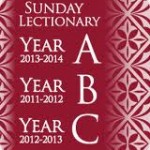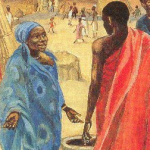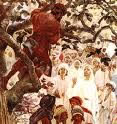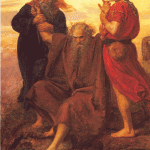Third Sunday in Ordinary Time – Cycle C
Reflecting on Luke 1:1-4; 4: 14-21
Of all the fascinating subjects—the saints, scripture, social justice— that are part of the lives of the 1 billion Catholics on the globe, the one I find the most compelling is the brilliant 1969 lectionary.
If you haven’t sat with some kind of publication that has the Sunday scriptures—week after week for a year or two at least– you are missing the best-kept secret of all the reforms since the Council.
There’s a method to why we read what we read when we read it, and it’s breathtaking. The first reading is chosen, out of all the scriptures in the entire Old Testament, to match the Gospel reading. And the Responsorial Psalm is chosen, out of all 150 psalms, to be the soft light that illumines the connection between those two.
They rhyme, kind of. They harmonize. Today’s section from Luke describes the process perfectly. Jesus takes his turn as lector in the synagogue in Nazareth. Isaiah 61 is the Torah portion (actually the “Half Torah”, since it’s from a prophet and not from the first five books) this particular day, describing the Spirit’s anointing on the one who does justice. Jesus closes the scroll and says, “That’s me. Isaiah is talking about me.”
That’s how the lectionary is shaped. The first reading is the overture, the gospel the opera.
It all started on that ancient day when Ezra the scribe, circa 450BC, read the earliest written version of The Books of Moses. Thousands of people stood, silently aware that the Divine Presence was among them as the Word was proclaimed.
We stand still, all these years later, when the gospel is proclaimed, in communion with all the Catholic men, women and children old enough to understand.
Have you ever been fascinated with the way the readings connected on a particular Sunday?
What would YOU like to say about this question, or today’s readings, or any of the columns from the past year? The sacred conversations are setting a Pentecost fire! Register here today and join the conversation.
I have come to light a fire on the earth; how I wish it were already burning (Lk.12:49).










